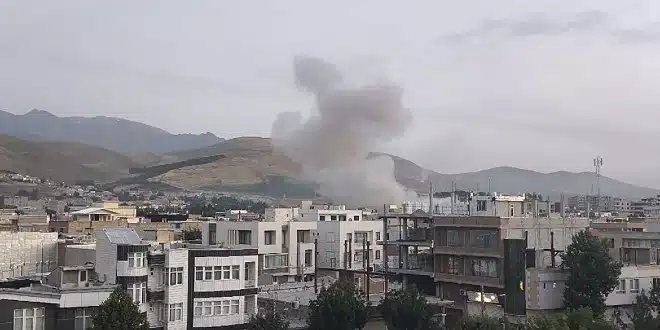On June 13, 2025, Israel initiated a large-scale military operation against Iran, targeting key nuclear and military installations. The offensive, termed “Operation Rising Lion,” involved approximately 200 Israeli aircraft striking over 100 sites across Iran, including the Natanz and Fordow uranium enrichment facilities. The International Atomic Energy Agency (IAEA) confirmed that the Natanz facility was among the sites hit, though no increase in radiation levels was reported.
The strikes resulted in the deaths of several high-ranking Iranian officials, notably Major General Hossein Salami, commander of the Islamic Revolutionary Guard Corps (IRGC), and General Mohammad Bagheri, Chief of Staff of the Iranian Armed Forces. These losses represent a significant setback for Iran’s military leadership.
In retaliation, Iran launched over 100 drones toward Israel. Israeli defense systems, along with assistance from regional allies, intercepted these drones before they reached Israeli territory. Jordan and Iraq reported drone activity over their airspace during the incident.
Prime Minister Benjamin Netanyahu stated that the operation aimed to neutralize imminent threats posed by Iran’s nuclear program. He indicated that the decision to proceed with the attack was made in November 2024, following the assassination of Hezbollah leader Hassan Nasrallah in September of that year. Netanyahu emphasized that the operation was essential for Israel’s national security.
The United States acknowledged prior knowledge of the operation but clarified that it was not directly involved. President Donald Trump reiterated the U.S. stance of preferring diplomatic solutions while warning against any retaliation targeting American interests. The U.S. has advised its citizens to leave Iran and has increased its military presence in the Middle East as a precaution.
Iran’s Supreme Leader Ayatollah Ali Khamenei condemned the Israeli strikes, describing them as a “declaration of war.” He vowed severe retaliation and accused Israel of targeting residential areas, a claim that has not been independently verified. Public protests erupted across Iran in response to the attacks.
The international community has expressed concern over the escalation. The United Nations Security Council has scheduled an emergency meeting to address the situation. Global leaders, including those from the UK, France, and Germany, have called for restraint to prevent further destabilization of the region.
The conflict has had immediate economic repercussions, with oil prices surging nearly 8% amid fears of broader conflict in the Middle East. Israel, Iran, Iraq, and Jordan have closed their airspace to commercial flights as a security measure.
As tensions remain high, the potential for further military engagement persists, with both nations preparing for possible subsequent actions. The situation continues to evolve, drawing significant international attention and concern.


